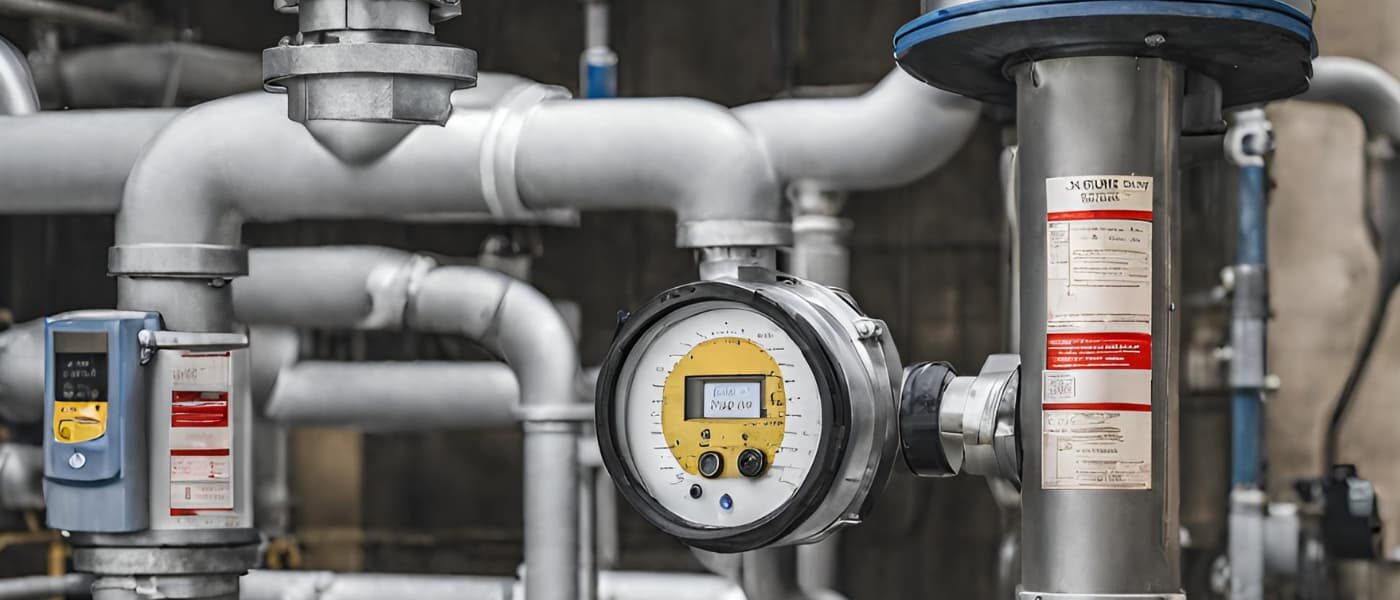In the quest for sustainability and reduced energy consumption, building design plays a pivotal role. At the heart of this endeavor lies the precise control of systems, particularly in Heating, Ventilation, and Air Conditioning (HVAC). In this comprehensive article, we delve into the significant role of valve actuators in achieving energy-efficient building design. We’ll explore how these crucial components, such as Honeywell valve actuators and control valves, contribute to optimizing energy usage in both commercial and residential buildings.
Building Design and Energy Efficiency
Energy-efficient building design is a cornerstone of modern architecture and construction. It encompasses a range of strategies aimed at minimizing energy consumption and reducing environmental impact. From the use of sustainable materials to innovative insulation techniques, every aspect of building design contributes to overall energy efficiency.
Building systems, particularly HVAC, play a central role in this endeavor. Precise control over heating, cooling, and ventilation is essential for maintaining comfort while minimizing energy consumption. Achieving this level of control requires advanced components, including valve actuators, which govern the flow of fluids within these systems.
Valve Actuators: Key Components
Valve actuators are instrumental in the regulation of fluid flow in building systems. They are responsible for opening and closing valves to control the flow of water, steam, or air, ensuring that HVAC systems operate with precision. There are various types of valve actuators, including electric, pneumatic, and hydraulic, each with its unique characteristics and applications.
In the context of energy-efficient building design, the choice of valve actuators is paramount. valve actuators and Johnson Controls control valves are two trusted names that offer precision and performance, making them ideal choices for optimizing HVAC systems.
Energy-Efficient HVAC Systems
HVAC systems are essential for maintaining indoor comfort, but they are also significant consumers of energy. Inefficient HVAC operation can lead to excessive energy usage and increased operational costs. Valve actuators come into play here by ensuring that HVAC systems deliver precise control over airflow, temperature, and pressure.
When it comes to energy efficiency, the key lies in achieving the delicate balance between comfort and conservation. Precise control of valve actuators optimizes the operation of HVAC components, ensuring that heating and cooling are delivered where and when needed, without unnecessary energy waste.
Honeywell Valve Actuators: Precision and Performance
Honeywell valve actuators are renowned for their precision and exceptional performance. These components are engineered to provide accurate and reliable control over HVAC systems. Advanced features such as precise positioning and rapid response contribute significantly to energy efficiency.
Consider a commercial building with a complex HVAC system. Honeywell valve actuators ensure that each component operates with utmost precision, responding promptly to changing conditions. This not only maximizes energy savings but also enhances occupant comfort.
Control Valves: Synergy for Efficiency
In synergy with valve actuators, Johnson Controls control valves form an integral part of HVAC systems in energy-efficient buildings. These control valves work seamlessly with valve actuators to provide precise control over the flow of fluids within the system.
Imagine a modern office building that adjusts heating and cooling according to occupancy patterns and outdoor temperature. Johnson Controls control valves, in conjunction with valve actuators, ensure that the HVAC system optimizes energy usage by modulating the flow of heating or cooling fluid as needed.
Benefits of Valve Actuators in Building Design
The benefits of using valve actuators in energy-efficient building design are multi-faceted. They include:
- Economic Advantages: Energy-efficient buildings enjoy reduced operational costs, making them financially attractive for owners and tenants.
- Energy Savings: Precise control of HVAC systems leads to significant energy savings, contributing to sustainability goals.
- Sustainability: Lower energy consumption translates into reduced environmental impact, aligning with green building standards.
- Occupant Comfort: Energy-efficient HVAC systems maintain consistent indoor comfort, enhancing the quality of life for occupants.
Future Trends and Innovations
As technology advances, valve actuator technology continues to evolve. Smart actuators with remote monitoring and automation capabilities are at the forefront of innovation. These actuators can adjust HVAC operation in real-time based on occupancy, weather conditions, and energy pricing, further optimizing energy efficiency.
Conclusion
In the realm of energy-efficient building design, precision control is the linchpin of sustainability and cost-effectiveness. Valve actuators, such as valve actuators and control valves, are the unsung heroes that ensure HVAC systems operate with utmost precision and efficiency. From commercial complexes to residential buildings, their role in optimizing energy usage is undeniable.
This article has shed light on the pivotal role of valve actuators in the pursuit of energy-efficient building design. The precision and performance offered by Honeywell and Johnson Controls components are instrumental in achieving the delicate balance between comfort and conservation. As the world embraces the importance of energy efficiency, architects, engineers, and building professionals are increasingly turning to these trusted solutions to create sustainable and comfortable spaces for the future.
